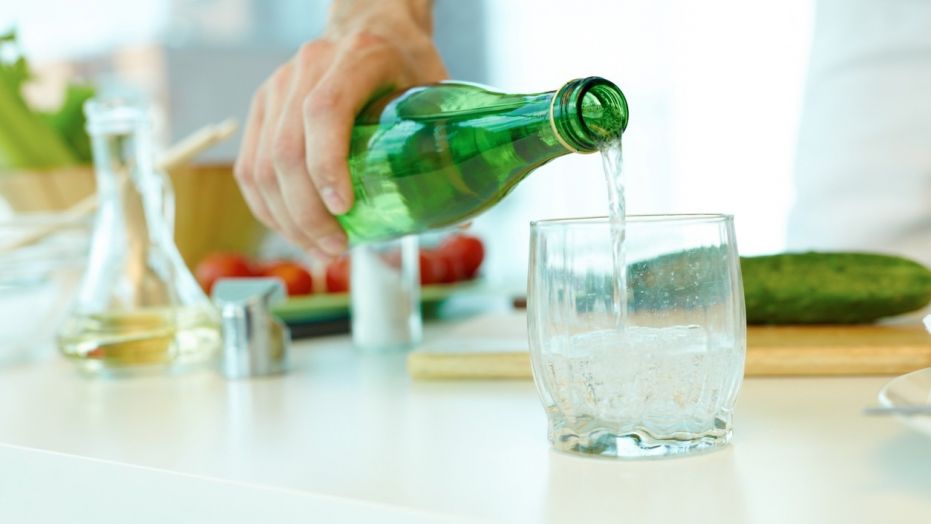[ad_1]

Seltzer water can be a wonderful way to stay hydrated — especially if you’re not in the mood for regular water.
(iStock)
Seltzer water seems to be making a bit of a comeback with new brands and flavors on the market. But is it actually good for you? And if so, how much is too much?
What’s the difference between seltzer water and sparkling water?
Seltzer and sparkling water differ slightly based on where the carbonation originates from, Dr. Mark Zeidel, chair of the department of medicine at Beth Israel Deaconess Medical Center in Boston, explained in a statement.
Artificial carbonation is a sign of seltzer or club soda. Naturally occurring bubbles are characteristic of sparkling water.
PATIENT DEVELOPS ‘BLACK HAIRY TONGUE’ FROM MEDICATION
That said, seltzer water can be a wonderful way to stay hydrated — especially if you’re not in the mood for regular water.
“Seltzer can be consumed the same way I would encourage anyone to consume water: in line with their body’s unique needs, which change from day to day,” said Jenna Hollenstein, MS, RDN, a nutrition therapist from New York.
Hollenstein says seltzer isn’t “inherently healthy or unhealthy.”
“For those who have trouble drinking enough water, seltzer might provide that little special texture or flavor that encourages good hydration,” she said. “But drinking it as a way of sidestepping eating or using it to feel full when what you really need is to eat is not a good intention.”
A healthier water?
All seltzer waters on the market aren’t created equally. Read the label to examine the nutrients. Some brands can contain artificial flavoring and added sugar.
Watch out for flavored seltzers, as added sugar also packs on calories and can impact energy consumption.
“Artificial sweeteners can have other effects, such as altered gut bacteria and taste distortion,” Hollenstein added.
Rachel Stahl, a registered dietitian from New York, says to check out the calories before taking a swig.
“Seltzer in its most natural form has zero calories, so if you notice the calories seem high, it’s likely that there is quite a bit of added sugar included,” Stahl said.
It’s important to note that beverages made with seltzer aren’t necessarily “healthy” or even calorie-free.
AAP URGES FLU VACCINE FOR KIDS 6 MONTHS AND OLDER
“Choose plain seltzer (its most natural form) and avoid any products with additives like added sugar or artificial sweeteners,” Stahl said, adding that plain seltzer can be a great alternative to soda. “For many, it fills the sought-after ‘fizzy fix’ without adding calories and sugar. It also is hydrating.”
Seltzer with booze
Hollenstein and Stahl both agree that seltzer has become popular in recent years. This includes varieties of alcoholic seltzer beverages on the market.
“Like any alcoholic beverage, these can be enjoyed in moderation,” Hollenstein said. “For a reminder of what that actually means, it’s one drink a day for women, two a day for men (often less than what many consider moderate). More than that can have negative health effects.”
Alcoholic seltzers can include an alcoholic content of 4 to 6 percent, Stahl notes.
“There is certainly danger in enjoying alcoholic seltzer regularly,” she said.
Because alcohol can lower our inhibitions, it may negatively affect people’s food and beverage choices, too.
“For instance, it may make people less mindful of portion sizes and less likely to make healthful choices,” Stahl said.
Alcohol also can influence hormones related to satiety and hunger.
“There are also reports that because alcoholic seltzer might not taste alcoholic, it may lead people to drink more than recommended, so it is important to drink in moderation,” Stahl added.
[ad_2]
Source link

